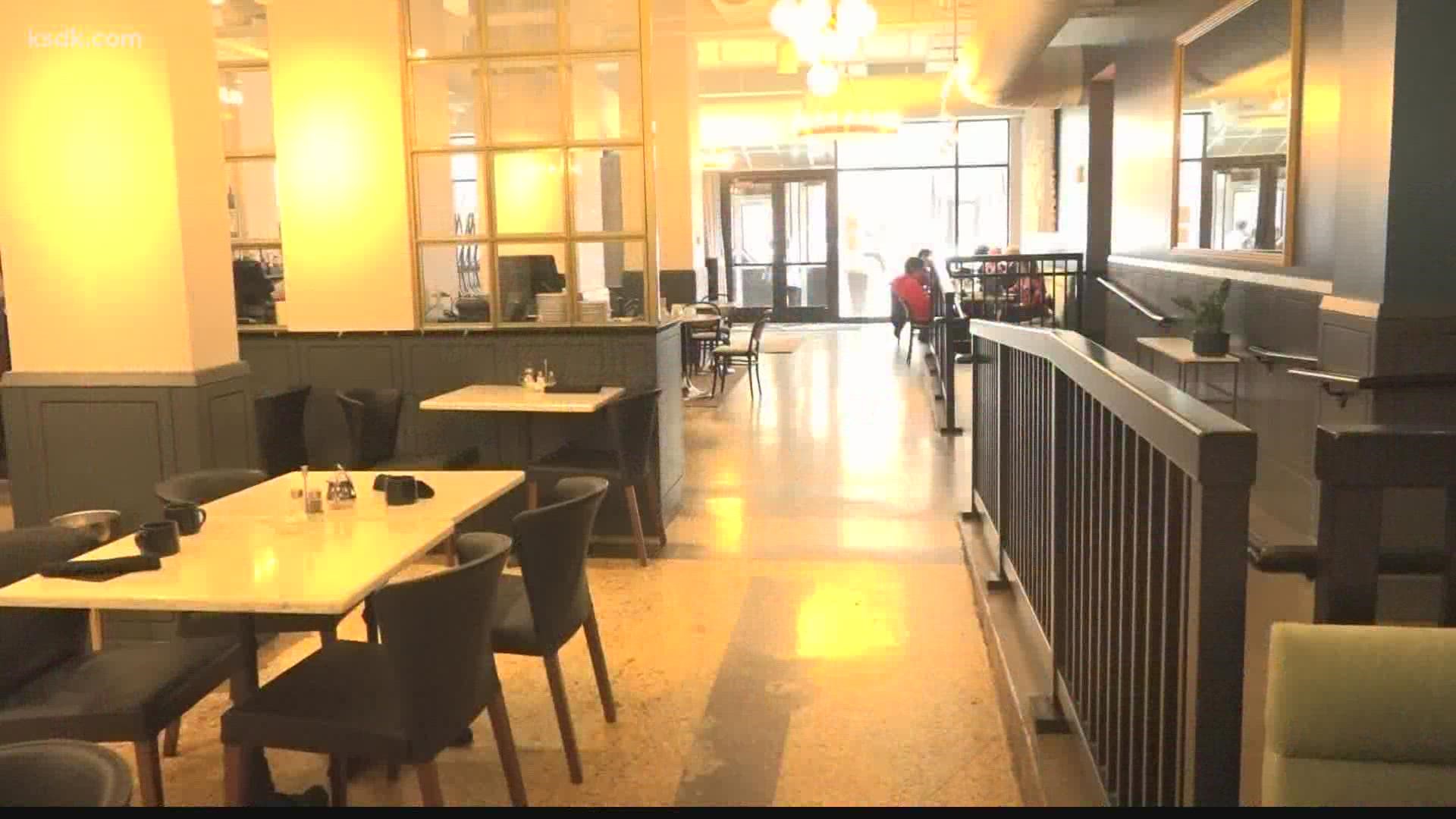ST. LOUIS — With COVID-19 seemingly having less of an impact on daily life, those in the service industry are still seeing the effects.
Many service workers and restaurant employees have not returned to the jobs COVID-19 forced them out of.
At Commonwealth Restaurant in the Angad Arts Hotel, Executive Chef Matthew Birkenmeier was asked why employees are not returning.
“I really don’t know,” said Birkenmeier, “I think it has a little bit to do with a lot of things. I think it could have been they found a different job, a different lifestyle they want to do, maybe a little bit better money. Not as much hassle. Not as much dealing with guests, if they don’t have to.”
Birkenmeier said a lack of employees is stretching those left behind.
“I’m a jack of all trades,” he said. “We had a bartender call in sick last week, and I had to bartend. It’s just whatever has to be done, we have to do it. And that’s where the upper management has had to step in and help out.”
We caught up with assistant general manager John Schuler on a day when he was returning from the trash dumpster.
“Hey, you got to do what you got to do to get the job done, right?” said Schuler. “That is where we are. It takes all of us.”
Hotels are in hiring mode.
Angad Arts Hotel General Manager Stacey Howlett said the employee shortage has forced service industry managers to go to plan B.
Howlett said, “Plan B is we start to rely on technology, a bit. We have added some apps to make service employees less-needed in the hotel. We can respond to guests quickly and efficiently with text messages, and I think hotels need to look at things like opening guest doors with keys that can be sent to your phone. These are things that might take people out of the equation.”
Webster University Human Resource Management instructor Dr. Julie Palmer said, “Some restaurant employees came back. And the ones who came back – you can look at the average wage now and it’s up 13 percent over a year ago.”
Palmer said former restaurant industry employees could return to their former jobs, now.
“But they’re not,” said Palmer, “For a couple reasons - we say wages are up, and yes, they are. However, their wages are still lower than the average retail worker’s wage by over 15 percent.”
After a lifetime working in restaurants, John Mangelsdorf chose practicality over passion.
“I was with Hotel St. Louis until COVID hit,” said Mangelsdorf. “I made it through the first three months of COVID until I got furloughed.”
Mangelsdorf now serves up packages at UPS.
“When you work in the industry you see not the nicest of people,” he said, “people that are very rude and very pushy. And it’s just that common courtesy goes a long way.”
Birkenmeier said even places of the caliber of the Angad Arts Hotel have had to adapt measures such as above-average hourly pay and sign-on bonuses to combat the employee shortage. Birkenmeier said he knows of fast food restaurants that are going to daily pay, similar to food delivery services, in an attempt to recruit employees.

